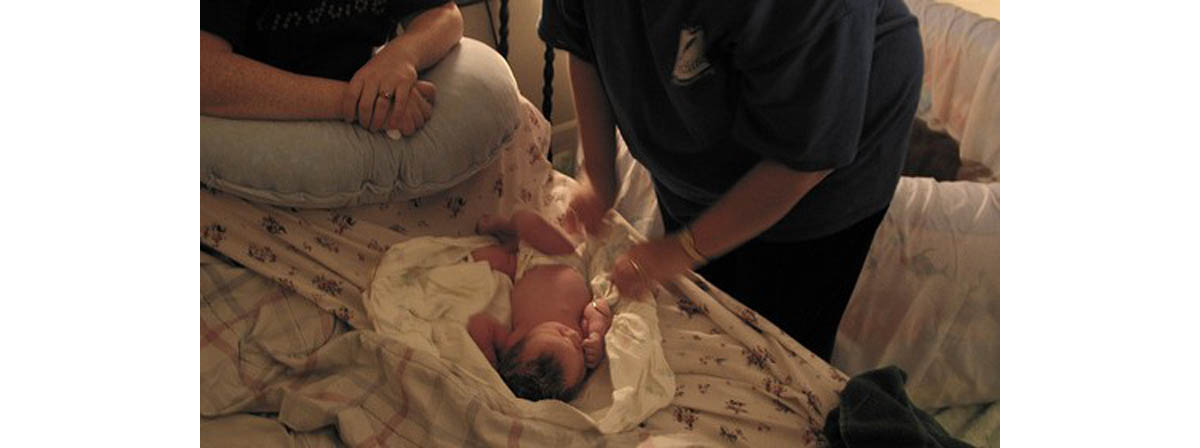Table of Contents
While around 0.3 percent of United States moms opt to give birth at a free-standing birth center (meaning, independent from a hospital), 0.6 percent chooses to give birth at home. Homebirth is a controversial choice to many, but well-designed studies consistently show that it is a safe choice for mother-baby pairs that are deemed to be low risk.

It's not difficult to see the benefits of having a homebirth — you may feel safer and more comfortable in your own home, and feel more at ease with the process of labor and birth without the watchful eyes of many people. People who choose homebirth (and I was one of them, twice) see pregnancy and birth as natural events and not medical conditions, unless evidence indicates otherwise.
While complications can and do sometimes occur, it's good to know that there are almost always warning signs that can be acted upon in time to transfer to a hospital. This is where the midwife (or team of midwives) attending a homebirth really matters. One of the midwife's most important roles is to watch out for signs of complications that are outside of her scope.
Homebirth midwives can be CNMs or CPMs, like you'll find at birth centers. They can also be lay midwives who do not have any formal training and have instead learned through self-study and apprenticeships. If you opt to have a homebirth, choosing your midwife is your most important decision.
I personally believe that, based on their lack of formal education, CPMs and lay midwives require a lot of careful scrutiny. Families who are not sure if they are capable of performing this scrutiny will probably be most comfortable with a midwife who has already thoroughly been scrutinized by others — that is, a Certified Nurse Midwife. CNMs do not attend homebirths in all states, however.
I have previously written an article on choosing a homebirth midwife, which I've inserted into the links box below. Please refer to that if you're wondering how to choose a good homebirth midwife. The article includes a list of questions that can help folks who are in the process of interviewing midwives find one they can trust.
Those moms who are going to give birth at home can test out how long it would take to transfer to the hospital of their choice (look for one with a good neonatal intensive care unit, rather than simply the nearest hospital), in all types of traffic. They may also want to preregister with the hospital to make it easier to receive care. If you have a CNM at your homebirth, she may have privileges at a local hospital, which also makes transferring a simpler and less stressful procedure.
- Photo courtesy of george ruiz by Flickr : www.flickr.com/photos/koadmunkee/5504527538/
- Photo courtesy of UMHealthSystem by Flickr : www.flickr.com/photos/umhealthsystem/6106701978/
- Photo courtesy of B. Baltimore Brown by Flickr : www.flickr.com/photos/bbaltimore/43114675/


Your thoughts on this